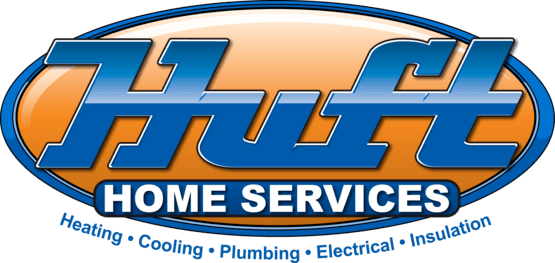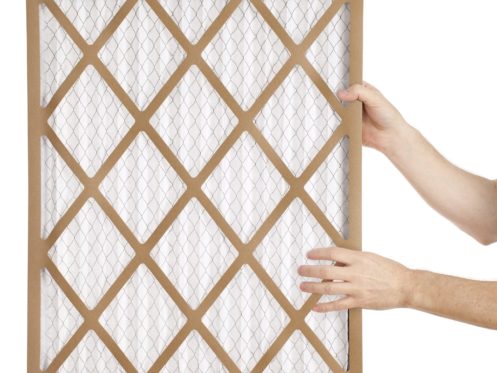Having sufficient heating and cooling in your home is obviously essential. Still, most homeowners generally don’t pay all that much attention to their HVAC system until there’s a problem. This is especially true when it comes to the HVAC air filter, which unfortunately many people ignore almost entirely.
Changing your air filter regularly is an essential part of HVAC maintenance. Nonetheless, if you’re like most people, you’re probably not sure how often you should replace your air filter or even what type of filter you should be using. With this in mind, here is everything you need to know about HVAC air filters, how often they should be changed, and which types of filters are the best.
How Do I Know When It’s Time to Replace My Air Filter?
HVAC experts recommend that you replace your air filter approximately every 30 to 90 days. When your furnace or air conditioner is running fairly constantly every day, you should probably replace the filter at least once a month or so. On the other hand, you can probably get away with replacing the filter less often during times like spring or fall when you rarely, if ever, have your heating or air conditioning running.
The easiest way to avoid all of the potential issues that can arise from a dirty or clogged air filter is to simply mark down a day on your calendar every few months to remind you to replace the filter. Nonetheless, you should also periodically check the filter every few weeks during those times when you’re using your heating or AC much more often. Specifically, you’ll want to look to see how dirty the filter is. If you notice a thick buildup of dust and debris on the filter, it is definitely time to replace it.
The Importance of Changing Your Air Filter Regularly
When called out to diagnose heating or air conditioning problems, we sometimes encounter people who haven’t replaced their air filter for years or don’t even know where the filter is. In many of these cases, the dirty air filter is at least partially responsible for causing the heating or cooling issues.
When the filter becomes overly dirty, it can become clogged and drastically restrict the airflow coming into your HVAC system. This results in the blower motor having to work much harder to draw air into the system. It also makes it more difficult to circulate the heated or cooled air throughout the home, which can lead to either insufficient or uneven heating and cooling. This lack of airflow also means that your furnace or air conditioner will generally have to run more frequently and for longer to keep your home at the desired temperature.
The harder your HVAC system has to work to heat or cool your home increases the wear and tear on your equipment, which can lead to costly repairs and shorten the lifespan of your furnace or AC unit. The decreased efficiency brought on by a clogged air filter also means you’ll end up spending much more on energy costs to heat and cool your home. For all of these reasons and more, it is essential that you check your air filter regularly and replace it as needed. While this obviously means spending more money on replacement filters, this added cost is still a fraction of what you’d have to pay to repair or replace your furnace or AC.
What Does the Air Filter Actually Do?
Many people assume that the air filter is meant to improve indoor air quality, which some of the more efficient air filters can do. Nonetheless, the main purpose of the air filter is to trap dust and other airborne particles from entering into the system and damaging your HVAC equipment. Primarily, the filter protects the blower fan and air handler.
Understanding the Types of Air Filters
When shopping for replacement air filters, it is easy to quickly become overwhelmed by the huge variety of types and sizes. Choosing the right size of filter is easy as all you need to do is see what size your current filter is. Alternatively, if your filter is missing, you can measure the opening where it should go. Standard residential air filters usually have a thickness of one inch, but they can vary quite a long in terms of length and width.
You have a whole lot more options when it comes to deciding the type of filter. Aluminum, cotton, and synthetic filters are all available, and you can also choose between disposable and washable filters. Different types of filter materials provide more efficient filtration than others. This information is displayed in the filter’s rating, which we will go into in more depth in a moment.
Compared to aluminum filters, cotton and synthetic filters are much more efficient at filtering out smaller particles like mold spores, pollen, and pet dander. This is especially true if the filter is pleated as this provides a much greater surface area that allows the filter to capture more particles.
There are also electrostatic filters that use charged ions to attract airborne particles to make them easier to trap. These filters can either be disposable or washable. Most people tend to choose disposable filters for their convenience. However, if you’re willing to put in the time to thoroughly clean your filter every few months, a washable filter can definitely save you money in the long run.
Air Filter Ratings
Air filters are usually rated using the MERV (minimum efficiency reporting value) system. This system measures how effective the filter is at trapping particles of various sizes. The filter is then rated on a scale from MERV 1 (least efficient) to MERV 20 (most efficient). Most residential air filters will range between MERV 4 and MERV 12, and you generally never want to go above or below this. Some air filter manufacturers like 3M and Home Depot do use their own rating systems, but MERV is the most common.
MERV 1 to MERV 4 filters typically don’t provide enough protection to prevent damage to your HVAC equipment, which is why these filters are generally only used in things like window AC units. On the other hand, anything above MERV 12 will usually restrict the airflow too much and can cause the same issues as a clogged filter. Most residential HVAC systems simply aren’t powerful enough to handle this level of filtration, which is why these higher-rated filters are typically only found in commercial and industrial settings or hospitals.
A MERV 6 or MERV 8 filter is usually a good all-around choice in terms of price and efficiency. However, if you’re concerned about indoor air quality or you suffer from asthma, allergies, or other respiratory problems, you may want to upgrade to a MERV 10 or MERV 12 filter. Although these higher-rated filters can be quite a bit more expensive, they will also provide much greater protection against pollen, dust mites, pet dander, mold spores, and other common allergens.
Reliable Heating, Cooling and More
If you have any questions about HVAC air filters, the experienced team at Huft Home Services is here to help. We have locations in Elk Grove, Yuba City, and Sacramento, CA and have been serving customers for nearly two decades. Our experienced HVAC technicians are on hand to take care of all of your heating and cooling maintenance, repair, and installation needs. We also have a team of licensed plumbers and electricians that can take care of the other systems in your home. Give us a call if you have any questions or fill out our contact form to have one of our experts get in touch with you.




